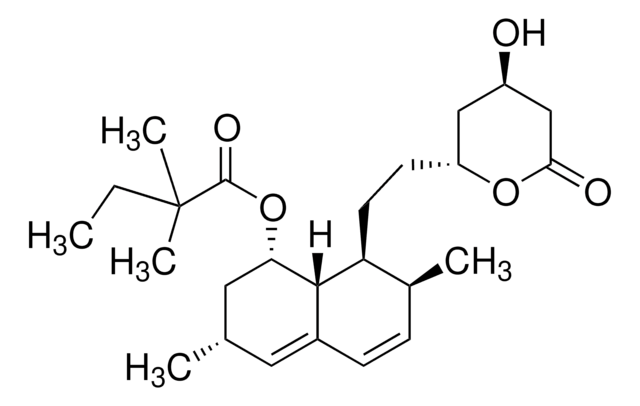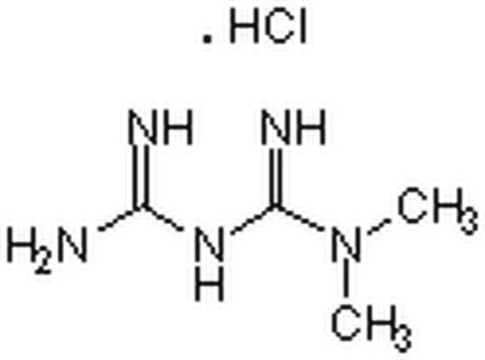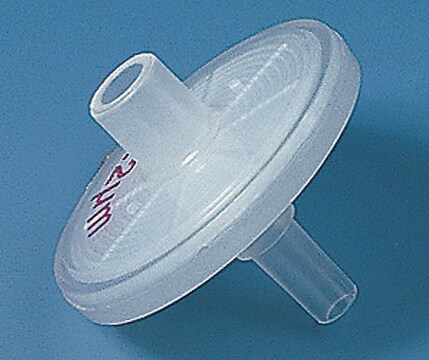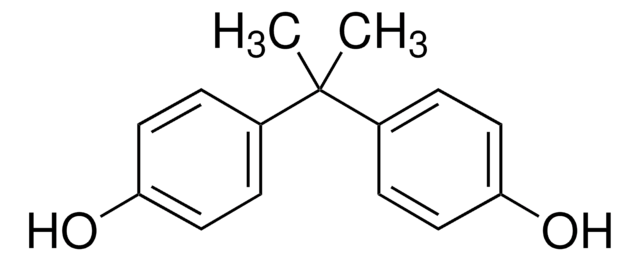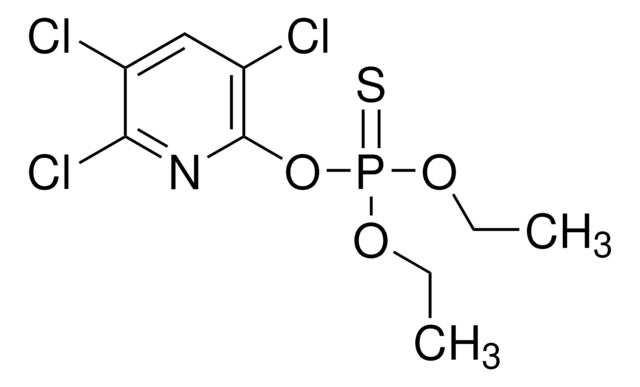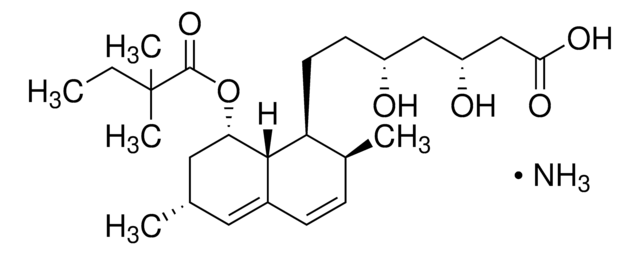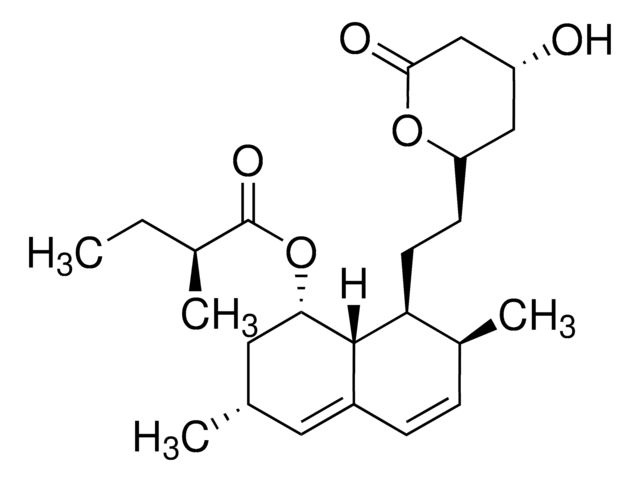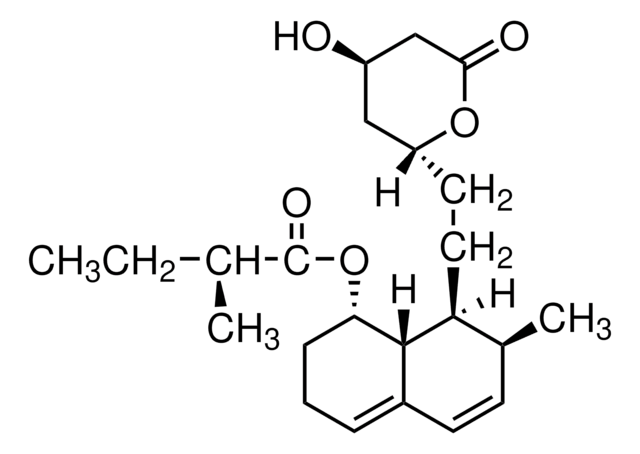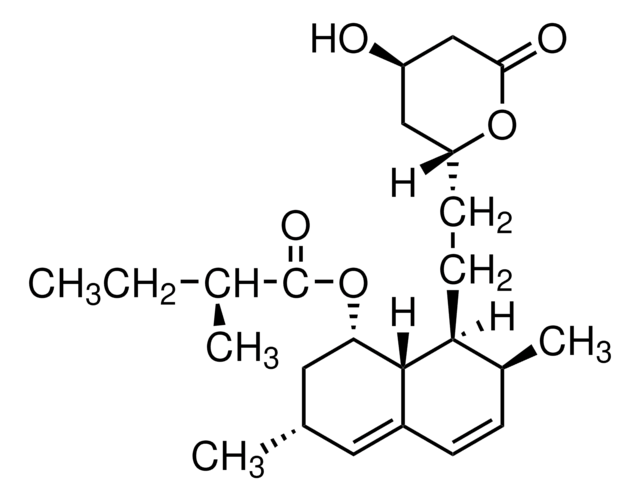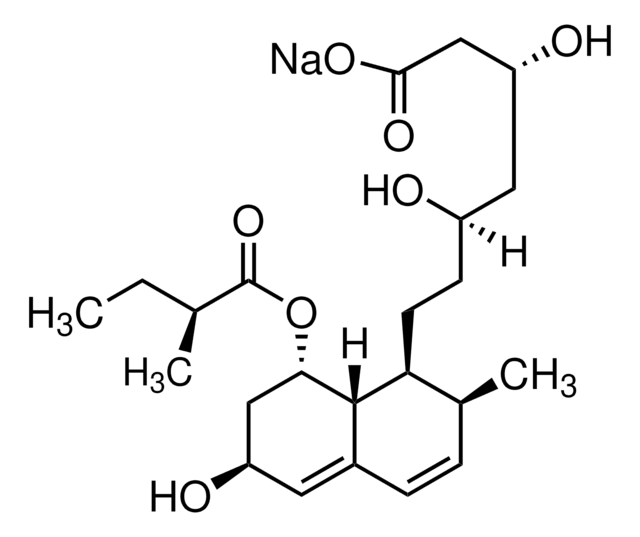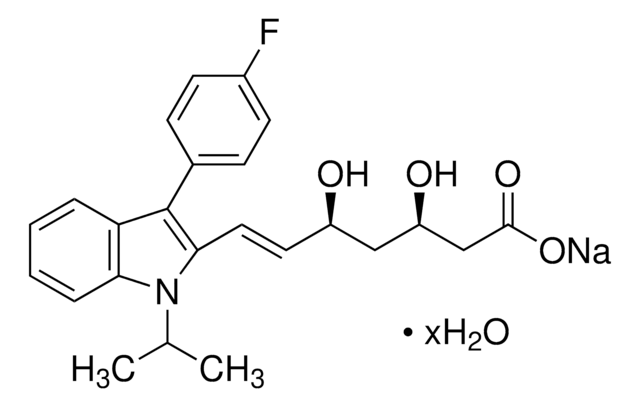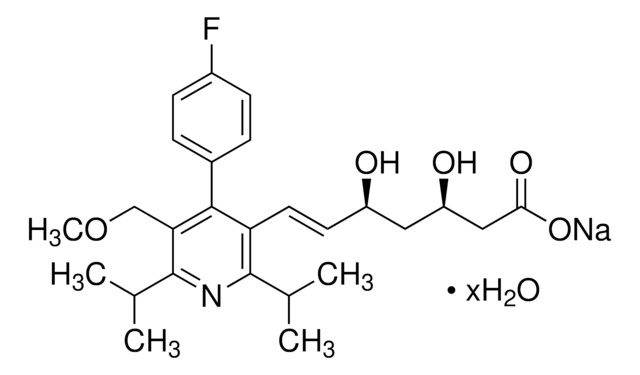38956
Simvastatin
analytical standard
About This Item
Productos recomendados
grado
analytical standard
Nivel de calidad
Análisis
≥98.0% (HPLC)
actividad óptica
[α]/D +275±25°, c = 1 in acetonitrile
caducidad
limited shelf life, expiry date on the label
técnicas
HPLC: suitable
gas chromatography (GC): suitable
impurezas
≤0.5% water
mp
127-132 °C (lit.)
aplicaciones
forensics and toxicology
pharmaceutical (small molecule)
veterinary
formato
neat
temp. de almacenamiento
2-8°C
cadena SMILES
[H][C@]12[C@H](C[C@@H](C)C=C1C=C[C@H](C)[C@@H]2CC[C@@H]3C[C@@H](O)CC(=O)O3)OC(=O)C(C)(C)CC
InChI
1S/C25H38O5/c1-6-25(4,5)24(28)30-21-12-15(2)11-17-8-7-16(3)20(23(17)21)10-9-19-13-18(26)14-22(27)29-19/h7-8,11,15-16,18-21,23,26H,6,9-10,12-14H2,1-5H3/t15-,16-,18+,19+,20-,21-,23-/m0/s1
Clave InChI
RYMZZMVNJRMUDD-HGQWONQESA-N
Información sobre el gen
human ... HMGCR(3156)
¿Está buscando productos similares? Visita Guía de comparación de productos
Aplicación
Acciones bioquímicas o fisiológicas
Palabra de señalización
Warning
Frases de peligro
Consejos de prudencia
Clasificaciones de peligro
Repr. 2
Código de clase de almacenamiento
11 - Combustible Solids
Clase de riesgo para el agua (WGK)
WGK 3
Punto de inflamabilidad (°F)
Not applicable
Punto de inflamabilidad (°C)
Not applicable
Elija entre una de las versiones más recientes:
¿Ya tiene este producto?
Encuentre la documentación para los productos que ha comprado recientemente en la Biblioteca de documentos.
Los clientes también vieron
Nuestro equipo de científicos tiene experiencia en todas las áreas de investigación: Ciencias de la vida, Ciencia de los materiales, Síntesis química, Cromatografía, Analítica y muchas otras.
Póngase en contacto con el Servicio técnico